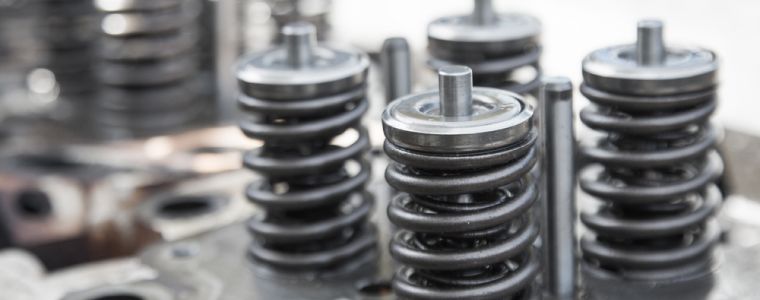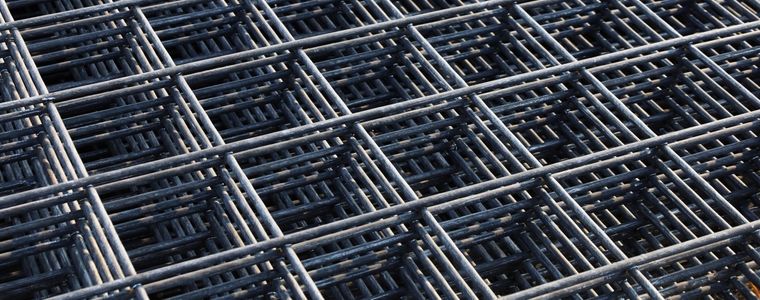What Is Titanium Used For?

Titanium, a versatile and highly sought-after metal, is pivotal in various industries due to its exceptional properties and wide-ranging applications. From aerospace engineering to biomedical devices, titanium’s unique characteristics make it indispensable in modern technology and manufacturing.
What is Titanium?
Discovered by William Gregor in the late 18th century, titanium is a versatile transition metal known for its remarkable properties, including an exceptional combination of high strength-to-density and corrosion resistance.
With a high melting point of 1,668°C, titanium maintains its integrity under extreme temperatures. Extracted primarily using methods like the Kroll and Hunter processes, titanium undergoes refining and processing to produce various forms for different applications. Titanium is highly sought-after in various industries & applications; it has the atomic number 22 and the chemical symbol Ti. Its remarkable properties drive innovation and push the boundaries of modern technology and manufacturing.
Aerospace: Titanium Applications

Titanium is indispensable in the aerospace and aviation industries due to its remarkable properties. Its lightweight yet strong nature makes it perfect for various aircraft and spacecraft components.
Engine Components: Titanium is extensively used in engine components such as turbine blades, discs, and compressor parts. These components require materials that can withstand high temperatures and stress, making titanium an excellent choice for enhancing engine performance and fuel efficiency.
Airframes: The durability and corrosion resistance of titanium make it a preferred material for airframe construction. It helps in reducing the overall weight of the aircraft while providing structural integrity and longevity.
Spacecraft Components: Titanium is used for critical components like satellite frames, rocket casings, and heat shields. Its ability to withstand extreme conditions in space ensures the reliability and safety of space missions.
Manufacturers continue to explore innovative ways to leverage titanium’s properties in aerospace titanium applications, driving advancements in aviation technology and shaping the future of air travel and space exploration.
Medical Applications of Titanium
Titanium’s exceptional properties extend beyond industrial and aerospace applications, making it invaluable, particularly for medical titanium implants and devices.
Medical Titanium Implants
Orthopaedic Implants: Titanium is widely used in orthopaedic implants, especially for medical titanium implants like hip and knee replacements. Its high strength and biocompatibility make it an ideal material for bearing the load and stress of weight-bearing joints.
Dental Implants: Medical titanium implants have revolutionised dentistry, offering a permanent solution for replacing missing teeth. These implants are surgically placed into the jawbone and serve as artificial tooth roots to support dental prostheses such as crowns, bridges, and dentures. Titanium’s biocompatibility ensures successful integration with the surrounding bone, resulting in a secure and long-lasting restoration.
Surgical Instruments: Titanium is also used to manufacture surgical instruments due to its lightweight nature, corrosion resistance, and strength. Instruments made from titanium are durable, easy to sterilise, and provide excellent tactile feedback for surgeons during procedures. From scalpels and forceps to bone screws and plates, titanium instruments play a vital role in modern surgical practices.
Biocompatibility: One of titanium’s most significant advantages in medical applications is its biocompatibility. When implanted into the human body, titanium does not trigger an immune response or cause adverse reactions, making it well-tolerated by most patients. Furthermore, titanium forms a strong bond with surrounding bone tissue through osseointegration, ensuring the stability and longevity of implants.
Titanium’s biocompatibility, strength, and corrosion resistance make it an ideal material for titanium medical implants and devices.
Titanium in Automotive Manufacturing

Titanium’s versatility and exceptional properties have led to its increasing application in automotive manufacturing, where the demand for lightweight yet strong components is ever-growing. This metal is revolutionising the industry by offering solutions to challenges related to fuel efficiency, performance, and environmental sustainability.
Automotive Titanium Parts:
Valve Springs: Titanium valve springs are gaining popularity in high-performance engines due to their lightweight construction and ability to withstand high temperatures and stress. These springs contribute to improved engine efficiency and power output.
Connecting Rods: Titanium connecting rods provide significant weight savings compared to traditional steel rods, resulting in reduced rotating mass and enhanced engine performance. Their high strength-to-weight ratio ensures durability and reliability under demanding conditions.
Exhaust Systems: Titanium exhaust systems offer superior heat resistance and corrosion resistance, leading to improved performance and longevity.
Suspension Components: Titanium is used in suspension components to reduce weight while maintaining strength and rigidity, enhancing vehicle handling and ride quality.
Benefits of Automotive Titanium Parts:
✓ Weight Reduction: The lightweight nature of titanium helps reduce the overall weight of vehicles, leading to better fuel efficiency and handling.
✓ Increased Performance: Titanium components contribute to enhanced engine performance, responsiveness, and durability, resulting in a smoother driving experience.
✓ Improved Fuel Efficiency: By reducing vehicle weight, titanium parts contribute to improved fuel economy and reduced emissions, aligning with the automotive industry’s focus on sustainability.
✓ Durability and Strength: Titanium’s exceptional strength and corrosion resistance ensure the longevity and reliability of automotive components, even in harsh operating environments.
Overall, the growing use of automotive titanium parts in manufacturing is driving innovation and advancements in vehicle design, performance, and sustainability, setting new standards for the automotive industry.
Titanium in Consumer Goods

Titanium, once reserved for aerospace and industrial applications, has made its way into consumer products, bringing its remarkable properties to everyday life.
Titanium Consumer Products:
1. Kitchenware
Titanium-coated cookware has gained popularity for its durability and non-stick properties. Pots, pans, and utensils made with titanium coatings offer superior scratch resistance and even heat distribution.
2. Watches and Jewellery
Titanium’s lightweight yet durable nature makes it an ideal choice for watches and jewellery. Titanium watches are resistant to scratches and corrosion, ensuring they stand the test of time. Titanium jewellery, with its hypoallergenic properties, is ideal for those with sensitive skin.
3. Sporting Goods
From golf clubs to bicycle frames, titanium is increasingly used in sporting goods for its strength and lightweight characteristics. Titanium golf clubs offer greater distance and accuracy, while titanium bicycle frames provide a smooth and comfortable ride without compromising durability.
4. Mobile Devices
Titanium cases for smartphones and tablets provide premium protection without adding extra bulk. These cases offer excellent impact resistance, ensuring devices stay safe even in the toughest conditions.
5. Eyewear
Titanium frames for eyeglasses and sunglasses are becoming increasingly popular due to their strength, flexibility, and lightweight design. Titanium frames are comfortable to wear and highly resistant to bending and breaking.
6. Outdoor Gear
Titanium camping cookware, tent stakes, and backpacking stoves have become staples for outdoor enthusiasts due to being lightweight and incredibly durable.
As titanium continues to find its way into more consumer products, it’s clear that its remarkable properties are enhancing our daily lives. Titanium consumer products are revolutionising how we interact with the world around us, offering durability, performance, and style.
Titanium Uses in Architecture and Civil Engineering

Titanium’s unique properties make it a valuable material for various architectural and civil engineering applications, ranging from structural components to decorative elements.
Architectural Cladding: Titanium is often used as a cladding material for buildings due to its durability, corrosion resistance, and aesthetic appeal. Titanium cladding panels protect against weathering while adding a sleek and modern look to architectural facades.
Structural Components: In addition to cladding, titanium is utilised in structural components such as beams, columns, and supports. Its high strength-to-weight ratio allows for the construction of lightweight yet sturdy structures, reducing material usage and overall project costs.
As we continue to advance in various fields, the significance of titanium in shaping our modern world becomes increasingly evident. For information on our titanium alloys and expert advice, get in touch.
